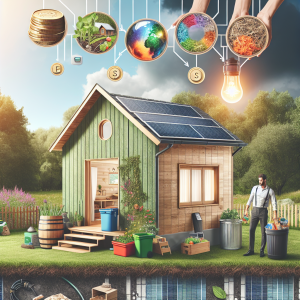Eco-friendly transport solutions are at the forefront of transforming the global travel landscape, driven by concerns over climate change, urban pollution, and finite natural resources. Rapid technological advancements and innovative policy frameworks are setting the stage for transportation systems that are not only efficient but also sustainable. This article delves into the latest developments in eco-friendly transport solutions, focusing on electric vehicles, sustainable aviation, public transport innovations, and alternative fuels, offering insights into the future of travel.
Electric Vehicles: The New Standard
Electric vehicles (EVs) have revolutionized personal and commercial travel by offering a cleaner alternative to conventional gasoline-powered cars. With battery technology continuously advancing, EVs are becoming more affordable and viable for longer distances. Notable developments in this sector include Tesla’s increasing range capabilities and the mass production of more affordable models by companies like Nissan and Chevrolet. Additionally, charging infrastructure is expanding globally, with countries like Norway and the Netherlands leading the way in establishing extensive networks of charging stations.
Moreover, governments worldwide are implementing policies to support EV adoption. Incentives such as tax credits, rebates, and reduced registration fees are enticing consumers away from traditional vehicles. This shift is further accelerated by stringent emissions regulations, compelling automakers to innovate and invest in electric mobility.
Sustainable Aviation: Cleaner Skies Ahead
The aviation industry, traditionally a significant contributor to carbon emissions, is undergoing a significant transformation. Innovations in aircraft design and alternative fuels are paving the way for sustainable aviation. Companies like Boeing and Airbus are developing aircraft with improved fuel efficiency and reduced noise pollution. For example, the Airbus A320neo and Boeing 787 Dreamliner models showcase advancements in aerodynamics and lightweight materials.
Alternative fuels, particularly sustainable aviation fuels (SAFs), are at the center of this shift. SAFs, derived from renewable resources such as waste oils and agricultural residues, promise to slash aviation’s carbon footprint. Major airlines, including Lufthansa and British Airways, are investing in SAFs to complement their sustainability strategies. Furthermore, electric and hybrid aircraft are in development stages, with companies like Eviation piloting projects to electrify short-haul flights.
Innovations in Public Transport: A Greener Commute
Public transportation systems are vital to reducing urban congestion and minimizing environmental impact. Innovations in this sector focus on electrification, improved efficiency, and integration of technology. Electric buses are proliferating in cities worldwide, with China’s BYD being a leading manufacturer in this domain. Cities like London and Los Angeles are making substantial investments to ensure their bus fleets are fully electric by the next decade.
Another significant trend is the development of smart public transport systems. This includes integrating Internet of Things (IoT) technologies to enhance customer experience and operational efficiency. Real-time data analytics allow for optimized scheduling and route planning, reducing unnecessary emissions and improving service reliability.
In addition, projects like Hyperloop transportation, conceptualized by Elon Musk, propose a futuristic mode of transport employing magnetic levitation technology for near-supersonic travel in vacuum tubes. Still in the experimental phase, this innovation promises significant energy savings and drastic reduction in travel times.
Alternative Fuels: Broadening the Horizon
The exploration of non-fossil fuels extends beyond aviation and into land and maritime transport. Biofuels, hydrogen, and even ammonia are under consideration as viable substitutes for conventional fuels. Automobile manufacturers like Toyota and Hyundai are pioneering hydrogen fuel cell technology, which emits only water vapor, as a clean alternative.
Hydrogen-powered trains are also becoming a reality, with Alstom’s Coradia iLint operating in Germany as a testament to the potential of hydrogen in rail transport. These trains offer a zero-emission solution, particularly on routes that are not feasible to electrify.
For maritime transport, ammonia is emerging as an attractive option due to its high energy density and zero carbon emissions when burned. Companies like Maersk are investing in research to develop ammonia-powered vessels as part of their commitment to carbon-neutral shipping by 2050.
Smart Mobility as a Service: Integrated and Efficient
The concept of Mobility as a Service (MaaS) integrates various forms of transport services into a single accessible platform, allowing users to plan, book, and pay for multiple types of travel seamlessly. This approach not only enhances efficiency but also encourages the use of public and shared modes of transport, which are typically more eco-friendly.
Cities like Helsinki and Singapore are pioneers in implementing MaaS solutions, reducing reliance on personal vehicles and promoting shared mobility, such as bike-sharing schemes, e-scooters, and carpooling services. With AI and machine learning, these platforms can predict and match travel demand, optimizing network efficiency and reducing environmental impact.
In summation, the future of eco-friendly travel lies in an integrated approach combining technological innovation, policy support, and consumer engagement. By embracing these solutions, the transportation sector can significantly reduce its carbon footprint while providing efficient and sustainable options for global travelers. The ongoing evolution of these strategies promises a cleaner, greener era of mobility that caters to the needs of both people and the planet.


